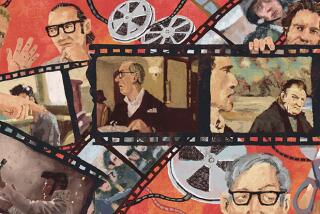Look at Gibson’s Choices in ‘Passion’
- Share via
Re “For Gibson, Devil Is in the Details,” Opinion, Feb. 29: Charlotte Allen’s survey of inaccuracies in “The Passion of the Christ” is informative but finally, as she admits, “niggling.” Moreover, it may distract us from the significant ways in which Mel Gibson chooses from his primary source material.
Among many scenes Gibson leaves out are the following: in Matthew 21 Jesus drives money-changers out of the temple; in Matthew 23 he delivers a long and very harsh speech against the Pharisees. In Matthew 10:34 he tells his apostles that he has come “not to bring peace to the world, but a sword”; in Mark 3:31-35 he refuses to see his mother and brothers, saying that his followers are his family.
At various other points Jesus defies Jewish customs and traditions. Unlike the innocent martyr to malevolent forces Gibson portrays, the messiah of the Gospels heals and advocates peace and love but also often antagonizes and provokes his opponents. His toe-to-toe confrontations, shrewd evasions and indictments clearly provoke the Pharisees against him. Like any artist, Gibson creates the meaning he wants. The Gospel writers themselves selected and edited, as differences among their narratives suggest. What may arise from Gibson’s pious intention, however, is another, more telling meaning. “The Passion” becomes a film in which ignorance, intolerant belief or political convenience causes people to forget their compassion and humanity and commit or sanction acts of savage brutality.
Harry Smallenburg
Burbank
*
It has occurred to me that Allen is straining out a gnat of nitpick while swallowing a camel of her own vanity and envy.
John Cooper
Beverly Hills
*
Michael Ramirez has taken out of context the most sacred scene of the crucifixion of Jesus by putting Gibson up onto a similar cross, implying that the unjustness of attacks on Gibson for his new movie “The Passion of the Christ” are of equal weight to the unjustness of Christ’s death (editorial cartoon, Commentary, Feb. 29). I, too, can take this most sacred Christian story out of context when referring to Ramirez’s editorial cartooning capabilities by saying, “Father, forgive Ramirez, for he knows not what he does.”
Donald A. Bentley
La Puente
*
I am a high school teacher and the daughter of Holocaust survivors. Monday morning, Period 1, a student, age 17, comes into my room. She asks me if I had seen the film “The Passion.”
I answer, “No.”
She continues, “It was so sad. I cried so much. I hate the Jews.”
Very, very sadly, that tells the whole story, Mr. Gibson.
Anna Paikow
Los Angeles
More to Read
Only good movies
Get the Indie Focus newsletter, Mark Olsen's weekly guide to the world of cinema.
You may occasionally receive promotional content from the Los Angeles Times.







